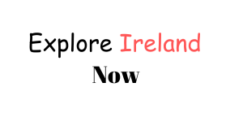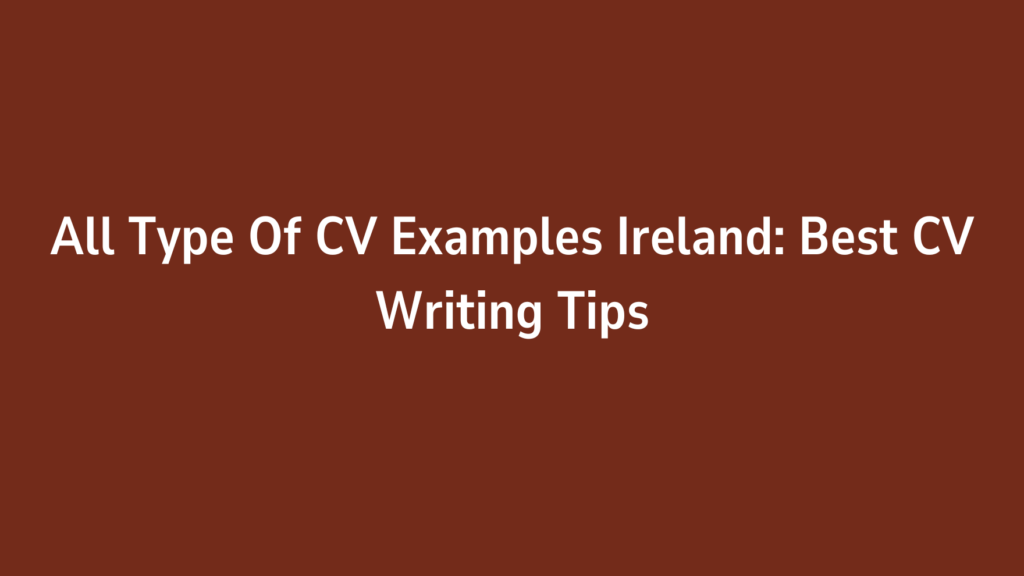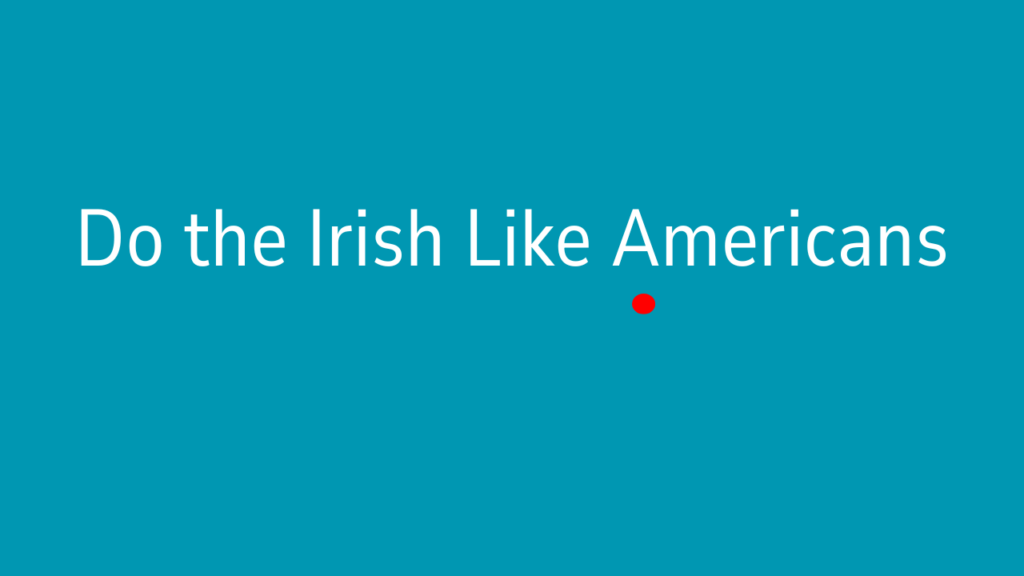Finding a job in Ireland can be exciting but also challenging if you don’t know where to start. Whether you are moving to Ireland for the first time or looking for new opportunities, this guide will help you understand the job market, where to look for jobs, and how to apply successfully.
Steps to Find a Job in Ireland
1. Understand the Job Market
Before applying for jobs, it is important to understand which industries have the most opportunities.
Top Industries in Ireland
| Industry | Job Opportunities |
|---|---|
| Technology | Software developers, IT specialists, data analysts |
| Healthcare | Nurses, doctors, caregivers |
| Finance | Accountants, financial analysts, banking jobs |
| Engineering | Civil, mechanical, electrical engineers |
| Hospitality | Chefs, hotel managers, waiters |
| Education | Teachers, lecturers, tutors |
| Construction | Builders, electricians, plumbers |
| Retail | Sales assistants, store managers |
| Customer Service | Call center agents, support representatives |
Job Availability in Different Cities
| City | Best Jobs Available |
|---|---|
| Dublin | IT, finance, marketing, customer service |
| Cork | Pharmaceuticals, tech, healthcare |
| Galway | Medical devices, IT, tourism |
| Limerick | Engineering, education, logistics |
| Waterford | Manufacturing, retail, healthcare |
2. Check If You Need a Work Visa
If you are from outside the EU/EEA, you may need a visa to work in Ireland.
Types of Work Permits
- Critical Skills Employment Permit – For high-demand jobs like IT, engineering, and healthcare.
- General Employment Permit – For jobs not covered under the Critical Skills list.
- Intra-Company Transfer Permit – For employees moving to Ireland within the same company.
- Working Holiday Visa – For young people from certain countries who want to work temporarily.
To check if you need a visa, visit the Irish Immigration website: www.irishimmigration.ie
3. Where to Find Jobs
Here’s a comprehensive list of online job portals in Ireland that you can use to search for jobs across various industries. These platforms are widely used by job seekers and employers in Ireland, and they cater to different skill levels, professions, and sectors.
1. General Job Portals
These platforms offer a wide range of job opportunities across multiple industries.
| Job Portal | Website | Description |
|---|---|---|
| Indeed.ie | https://www.indeed.ie | One of the largest job search engines globally, with thousands of Irish job listings. |
| IrishJobs.ie | https://www.irishjobs.ie | A leading Irish job board with roles in IT, healthcare, finance, and more. |
| Jobs.ie | https://www.jobs.ie | A popular job portal with a user-friendly interface and diverse job listings. |
| Monster.ie | https://www.monster.ie | Offers a wide range of jobs and career advice for job seekers in Ireland. |
| RecruitIreland.com | https://www.recruitireland.com | A job board with listings across various sectors and career levels. |
| CareerJet.ie | https://www.careerjet.ie | Aggregates job listings from multiple sources, making it easy to find roles. |
| Jobbio | https://jobbio.com/ie | A global job platform with a strong presence in Ireland. |
2. Specialized Job Portals
These platforms focus on specific industries or job types.
| Job Portal | Website | Description |
|---|---|---|
| Cpl Jobs | https://www.cpl.ie | Specializes in IT, healthcare, finance, and engineering roles. |
| Morgan McKinley | https://www.morganmckinley.ie | Focuses on professional and executive roles across various sectors. |
| Hays Ireland | https://www.hays.ie | A recruitment agency with job listings in finance, IT, construction, and more. |
| Sigmar Recruitment | https://www.sigmarrecruitment.com | Offers roles in accounting, IT, engineering, and life sciences. |
| Collins McNicholas | https://www.collinsmcnicholas.ie | Specializes in engineering, science, and office support roles. |
| Brightwater Recruitment | https://www.brightwater.ie | Focuses on finance, IT, legal, and HR roles. |
| Excel Recruitment | https://www.excelrecruitment.com | Specializes in hospitality, retail, and office support roles. |
3. Graduate and Entry-Level Job Portals
These platforms are tailored for recent graduates or those seeking entry-level positions.
| Job Portal | Website | Description |
|---|---|---|
| GradIreland | https://www.gradireland.com | A dedicated platform for graduate jobs, internships, and career advice. |
| CareersPortal.ie | https://www.careersportal.ie | Offers career guidance and job listings for students and graduates. |
| Irish Graduate Jobs | https://www.irishgraduatejobs.com | Focuses on graduate roles and internships in Ireland. |
4. IT and Tech Job Portals
These platforms are ideal for job seekers in the technology sector.
| Job Portal | Website | Description |
|---|---|---|
| Jobs in Dublin | https://www.jobsindublin.ie | Focuses on tech jobs in Dublin, Ireland’s tech hub. |
| Technojobs.ie | https://www.technojobs.ie | Specializes in IT and tech roles, including software development and cybersecurity. |
| JobContax | https://www.jobcontax.com | Focuses on engineering and IT roles in Ireland. |
| E-Frontiers | https://www.e-frontiers.ie | Specializes in IT, digital, and tech recruitment. |
5. Healthcare and Nursing Job Portals
These platforms cater to healthcare professionals.
| Job Portal | Website | Description |
|---|---|---|
| NursingJobs.ie | https://www.nursingjobs.ie | Dedicated to nursing and healthcare roles in Ireland. |
| TTM Healthcare | https://www.ttmhealthcare.com | Specializes in healthcare, nursing, and social care roles. |
| FRS Recruitment | https://www.frsrecruitment.com | Offers roles in healthcare, education, and professional services. |
6. Construction and Engineering Job Portals
These platforms focus on roles in construction, engineering, and related fields.
| Job Portal | Website | Description |
|---|---|---|
| ConstructionJobs.ie | https://www.constructionjobs.ie | Specializes in construction and engineering roles. |
| Oradeo Recruitment | https://www.oradeo.com | Focuses on engineering, construction, and renewable energy roles. |
| ICDS Recruitment | https://www.icds.ie | Offers roles in construction, engineering, and IT. |
7. Hospitality and Retail Job Portals
These platforms are tailored for job seekers in hospitality, retail, and customer service.
| Job Portal | Website | Description |
|---|---|---|
| Caterer.com | https://www.caterer.com/ireland | Focuses on hospitality and catering jobs in Ireland. |
| HospitalityJobs.ie | https://www.hospitalityjobs.ie | Specializes in hospitality and tourism roles. |
| RetailJobs.ie | https://www.retailjobs.ie | Dedicated to retail and customer service roles. |
8. Freelance and Remote Job Portals
These platforms are ideal for freelancers or those seeking remote work opportunities.
| Job Portal | Website | Description |
|---|---|---|
| Upwork | https://www.upwork.com | A global platform for freelance work in various fields. |
| Fiverr | https://www.fiverr.com | Offers freelance opportunities for creative and technical professionals. |
| Remote.ie | https://www.remote.ie | Focuses on remote job opportunities in Ireland and globally. |
| WeWorkRemotely | https://weworkremotely.com | Lists remote jobs in tech, marketing, and customer support. |
9. Public Sector and Government Job Portals
These platforms focus on public sector and government jobs in Ireland.
| Job Portal | Website | Description |
|---|---|---|
| PublicJobs.ie | https://www.publicjobs.ie | The official recruitment website for Irish public sector jobs. |
| State.ie | https://www.state.ie | Offers roles in the civil service and public sector. |
10. Internship and Part-Time Job Portals
These platforms are ideal for students or those seeking part-time or internship opportunities.
| Job Portal | Website | Description |
|---|---|---|
| Internwise.co.uk | https://www.internwise.co.uk | Lists internships in Ireland and the UK. |
| StudentJob.ie | https://www.studentjob.ie | Focuses on part-time and student jobs in Ireland. |
11. International Job Portals with Irish Listings
These global platforms also feature job opportunities in Ireland.
| Job Portal | Website | Description |
|---|---|---|
| https://www.linkedin.com | A professional networking site with job listings in Ireland. | |
| Glassdoor | https://www.glassdoor.ie | Offers job listings and company reviews for Irish employers. |
| Adzuna.ie | https://www.adzuna.ie | Aggregates job listings from various sources, including Irish companies. |
12. Regional Job Portals
These platforms focus on job opportunities in specific regions of Ireland.
| Job Portal | Website | Description |
|---|---|---|
| GalwayJobs.ie | https://www.galwayjobs.ie | Focuses on jobs in the Galway region. |
| CorkJobs.ie | https://www.corkjobs.ie | Lists job opportunities in Cork and surrounding areas. |
| DublinJobs.com | https://www.dublinjobs.com | Specializes in jobs in Dublin, Ireland’s capital city. |
Tips for Using Job Portals Effectively
- Create Profiles: Register on multiple platforms to increase your visibility.
- Set Up Alerts: Enable job alerts to receive notifications about new postings.
- Tailor Applications: Customize your CV and cover letter for each job application.
- Research Employers: Use company reviews on platforms like Glassdoor to learn about potential employers.
By leveraging these online job portals, you can significantly enhance your job search in Ireland. Whether you’re looking for a full-time role, part-time work, or freelance opportunities, these platforms offer a wealth of options to help you find the right job. Good luck!
4. Create a Strong CV and Cover Letter
Your CV (resume) and cover letter are very important when applying for jobs.
CV Tips
- Keep it short (1-2 pages).
- Include contact details, work experience, education, and skills.
- Use clear formatting and bullet points.
- Highlight achievements instead of just listing duties.
Cover Letter Tips
- Keep it brief (one page).
- Customize it for each job you apply for.
- Show enthusiasm for the role.
- Explain why you are a good fit for the job.
5. Prepare for Job Interviews
If your application is successful, you will be invited for an interview.
Types of Interviews
- Phone interview – A short initial call.
- Video interview – Often used for remote jobs or first-round interviews.
- Face-to-face interview – A formal meeting with the employer.
- Assessment center – Group activities and tasks (common for graduate jobs).
Common Interview Questions
- Tell me about yourself.
- Why do you want to work for this company?
- What are your strengths and weaknesses?
- Can you give an example of a time you solved a problem at work?
- Where do you see yourself in five years?
Interview Tips
- Dress professionally.
- Research the company beforehand.
- Be confident and polite.
- Ask questions at the end.
6. Understand Work Culture in Ireland
Work Hours and Salary
| Category | Details |
|---|---|
| Work Week | 39–40 hours per week |
| Minimum Wage | €12.70 per hour (as of 2025) |
| Paid Leave | 20 days per year (minimum) |
| Sick Leave | Paid sick leave (depends on employer) |
| Public Holidays | 10 per year |
Workplace Etiquette
- Be punctual – Arrive on time for meetings and work.
- Be polite and respectful – Irish workplaces are friendly but professional.
- Participate in teamwork – Collaboration is important.
- Socializing – Many Irish companies have after-work events and team bonding activities.
7. Settling in After Getting a Job
Once you find a job, there are a few things you need to do:
- Get a PPS Number – This is required to pay taxes. Apply at: www.mywelfare.ie.
- Open a Bank Account – Needed to receive your salary. Popular banks include AIB, Bank of Ireland, and Revolut.
- Find Accommodation – Use websites like Daft.ie or Rent.ie.
- Understand Taxes – Learn about PAYE (Pay As You Earn) and tax credits on Revenue.ie.
- Register with a GP (Doctor) – Healthcare services are available through the HSE.
FAQ
1. Do I need a visa to work in Ireland?
If you are from outside the EU/EEA, you will likely need a work permit. Ireland offers different types of permits, such as the Critical Skills Employment Permit and the General Employment Permit.
2. What are the best job websites in Ireland?
Popular job search websites include:
3. What is the average salary in Ireland?
Salaries vary by industry, but the minimum wage is €12.70 per hour (as of 2025). The average salary for full-time workers is around €45,000 per year.
4. What are the most in-demand jobs in Ireland?
The top industries hiring in Ireland include:
- Technology (Software Engineers, Data Analysts)
- Healthcare (Doctors, Nurses, Caregivers)
- Finance (Accountants, Financial Analysts)
- Construction (Electricians, Engineers)
- Hospitality (Chefs, Hotel Managers)
5. How do I write a good CV for jobs in Ireland?
A good CV should be:
- 1-2 pages long
- Clearly formatted with bullet points
- Focused on skills and achievements
- Tailored for each job application
6. What are common interview questions in Ireland?
Employers often ask:
- Tell me about yourself.
- Why do you want to work for us?
- What are your strengths and weaknesses?
- Describe a time you solved a problem at work.
- Where do you see yourself in five years?
7. Can I work in Ireland without speaking English fluently?
While English is the main language for most jobs, some positions (especially in hospitality and manual labor) may not require fluency. However, improving your English will help you get better job opportunities.
8. How can I find a job quickly in Ireland?
- Apply through multiple job websites.
- Network with professionals on LinkedIn.
- Contact recruitment agencies.
- Tailor your CV and cover letter for each application.
9. How long does it take to get a job in Ireland?
It depends on your qualifications, industry, and job market demand. Some people find jobs in a few weeks, while others may take several months.
10. What should I do after getting a job offer?
- Apply for a PPS number (for tax purposes).
- Open a bank account to receive your salary.
- Find accommodation through websites like Daft.ie.
- Understand your contract and benefits before signing.
Conclusion
Finding a job in Ireland requires effort, but with the right steps, you can be successful. Start by researching the job market, preparing your CV, and applying through online job portals and networking. Once you secure a job, understanding Irish work culture and settling in will help you enjoy your new career.
If you’re ready to start your job search, check the websites and recruitment agencies mentioned above. Good luck!

Hi, I’m Tanvir, the founder and author of Explore Ireland Now. With a deep love for Ireland and its rich culture, history, and landscapes, I created this site to share everything that makes this beautiful country worth exploring. Whether you’re a local looking for hidden gems or a traveler planning your next adventure, I provide insightful guides, tips, and recommendations to help you experience Ireland to the fullest.
From stunning landscapes to vibrant cities and quaint villages, Ireland is full of wonders waiting to be discovered. Through my personal experiences and research, I aim to bring you the most up-to-date information and inspiration for your journey.
Thank you for visiting Explore Ireland Now—I hope my content helps you uncover all that this incredible country has to offer! If you have any questions or need travel advice, feel free to reach out.



